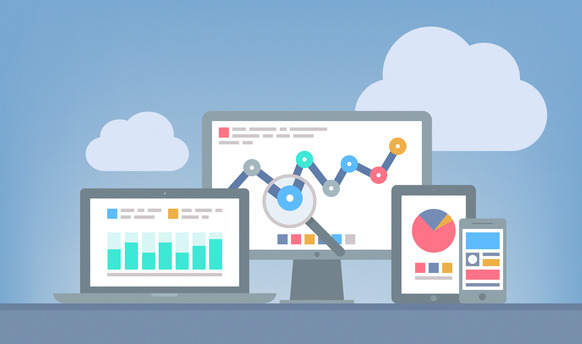
Why Remote Work Monitoring is Important
Should you keep an eye on your remote employees? You must have heard a lot about it. One side answered yes, while the other replied no. Some argue that you can only rely on trust to run a remote workforce. Yes, you can, but what about the employee productivity that may be lost due to your failure to supervise your remote team? What about your company’s performance, which may suffer due to your remote workforce’s inefficiency? Remote work monitoring is essential from a business standpoint. Read on to learn why remote work monitoring is important.
What Exactly Is Remote Work Monitoring?
Remote work monitoring allows companies to monitor workers’ activities and productivity for the firm’s benefit. Though others say it violates employees’ privacy and autonomy, it may assist managers in getting an immediate insight into colleagues’ deliverables and progress.
Why Remote Work Monitoring Is Important
Managers of remote workers may find it challenging to verify that their team in the field is performing to the best of their abilities. Managers are forced to assume what workers are doing throughout the day since they do not have a way to monitor their actions. Fortunately, several software solutions are available that allow managers to monitor the activities of their remote staff, as well as the time spent visiting customers and on the road. Let’s look at some advantages of employing such tools to monitor remote work.
1. Provides You Peace of Mind
Many individuals have begun working from home due to the global emergency of COVID-19. Transitioning to this new work culture presents obstacles and opportunities for individuals and businesses. One of the most important considerations for an employer is whether or not their staff are working.
Because remote working on this scale represents a new kind of work culture, it is normal to be concerned about workers’ job performance. Remote employee monitoring software may provide the following:
- A complete view
- Allowing you to examine each person’s overall performance
- Productivity
- Engagement with only a few clicks
2. Builds Accountability
Employees may compare their performance with the rest of the team by using a time and productivity tracking system, such as monitoring office 365. A self-motivating work strategy may lead processes to accelerate, and many employees will go above and above for a project.
3. Sets a Trusted Environment
Remote work monitoring software verifies an employee’s performance while providing feedback to the employee. Employers may use this program to get information on their workers’ general performance, total productive hours, job commitment, etc. All of these characteristics assist managers in making critical staff choices based on solid facts.
4. Keeps Employees Focused
Employees working from your office premises are not in a remote work environment. It may be distracting, and keeping focused in such an atmosphere might be difficult for workers. Employee productivity hours are tracked via remote employee monitoring software. This tracking system encourages employees to remain focused and productive throughout work hours. It might be easier to track employees’ productive hours with remote employee monitoring software.
5. Handles Budget Better
It may take time to predict how much effort, time, and resources will be required to finish a specific project. A manager might presume initiatives for high-priority customers need more attention than those for clients with lower revenue, but there are better methods to allocate cash.
Managers may observe how much time a representative generally spends with a certain customer and the tasks they do for that client when personnel monitoring is in place. This information gives managers a better understanding of the demands of that specific customer and allows them to allocate finances and human resources appropriately. The more managers understand client-employee interactions, the better they can allocate organizational resources.
6. Accurately Bill Clients
When staff must depend on their recollections to record their time with customers, their reporting is vulnerable to human error, which may result in billing mistakes. This may be detrimental to your organization’s financial line and customer connection. If a customer believes their bill does not represent the care they got from your company, a disagreement may emerge, causing the client to discontinue doing business with you entirely.
Not only can this affect an organization’s cash stream, it may also harm its reputation. However, if a company uses time monitoring software, there will be actual evidence to demonstrate how many hours a representative spent with a customer. With this information, the customer will be pleased to know that they were appropriately billed, and your business will save money since workers’ hours were accurately documented.
7. Recognizes Employee
It’s common for remote workers to feel undervalued, particularly high-performing staff who do their tasks on time and with excellence. Remote employee monitoring allows you to track performance and discover who is working effectively. Employers may then recognize them for a successful job.
8. Effectively Manage Project Timelines

An hourglass is used to measure time lapse
Before assigning tasks, managers would create a project timeframe. Managers may watch the time workers spend on a project and their tasks using employee monitoring to check whether they are adhering to the suggested timeframe. Insights acquired from this data allow managers to teach people as required to ensure they are working effectively or to create a new timetable. Monitoring, in any case, will prevent projects from being delayed due to inefficiencies in the field.
Conclusion
When people hear about remote work monitoring systems, they often think of software spying on them. However, the truth is somewhat different. The monitoring system assures efficiency, assists remote workers in staying focused, and fosters a trustworthy work environment, all of which are critical for a remote team.
Furthermore, monitoring remote workers’ activity assists managers in determining which company procedures are effective and which need improvement. Organizations using employee monitoring might benefit from increased company development and engagement.



